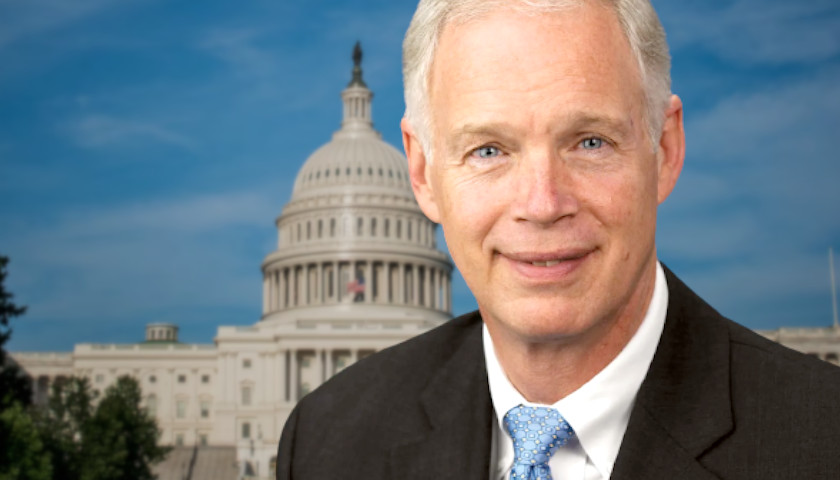Senator Ron Johnson (R-WI) wrote jointly with several colleagues to President Joe Biden this week urging him to reverse major elements of his anti-fossil-fuel agenda.
The letter from the senators takes issue with several actions the White House has taken to hinder investment in, and use of oil, natural gas, and coal in an effort the administration insists is important to lessening global warming.
“In the nearly two years since you were sworn into office, your administration has made countless efforts to push through its sweeping environmental agenda through the financial regulators,” the lawmakers wrote. “These efforts, though sold by administration officials as steps necessary to mitigate climate risks, are solely an attempt to strong-arm financial institutions and other firms into choking off capital to industries that are foundational to our nation’s economy, yet are continually villainized by the far left.”
Senators first criticized the Securities and Exchange Commission’s (SEC) proposed requirement that public companies provide an accounting of their carbon emissions investors. Free-market advocates have strongly reproved the administration for suggesting that the SEC deal with an environmental concern that many believe is well outside its remit as a financial regulator.
Signers to the letter complained further that the SEC rule not only calls on corporations to account for their greenhouse-gas discharge but for “Scope 3” emissions to which they indirectly contribute via their customers and suppliers. Because Scope 3 discharge is not under the control of the public company, Johnson and his colleagues opined the prospective regulation would be “unworkable.”
The administration has also proposed a Federal Supplier Climate Risks and Resilience Rule imposing a similar mandate on federal contractors, which the senators characterized as “equally alarming” insofar as they believe it would be detrimental to many small businesses.
Other ways in which the administration is pursuing its climate agenda concern the banking industry. The Federal Reserve, the Office of the Comptroller of the Currency, and the Federal Deposit Insurance Corporation have advised large banks to engage in climate-change risk management irrespective of fiduciary impact. The Department of Labor, meanwhile, has called for pension administrators to factor in climate change when making investment choices.
“All of these actions have real-world impacts that your administration would be well served to evaluate,” the letter read. “For instance, establishing rules, strategic plans, and principles to coerce financial institutions and other firms to limit their lending and exposure to certain businesses drives up prices on consumers. Choking off access to capital for companies in the energy sector in an attempt to decimate the fossil fuels industry drives up the cost of fuel and electricity at a time of record costs, further stoking inflation.”
Other signatories to the letter included Senators John Thune (R-SD), John Barrasso (R-WY), Marsha Blackburn (R-TN), Mike Braun (R-IN), Shelley Moore Capito (R-WV), Kevin Cramer (R-ND), Ted Cruz (R-TX), Chuck Grassley (R-IA), Cynthia Lummis (R-WY), Roger Wicker (R-MS) and John Hoeven (R-ND).
The June U.S. Supreme Court decision West Virginia v. EPA leads some to question whether the Biden administration will ultimately be permitted to implement its planned SEC rule. The decision held that the court can nullify a regulation if it has a novel application is economically or politically consequential and lacks unmistakable congressional authorization.
Senator Sheldon Whitehouse (D-RI) is among those encouraging Biden to go forward with the disclosure requirement anyway.
“Where there is a strong factual basis and legal support for rulemaking, agencies should move forward with confidence,” he recently commented.
– – –
Bradley Vasoli is managing editor of The Wisconsin Daily Star. Follow Brad on Twitter at @BVasoli. Email tips to [email protected].








